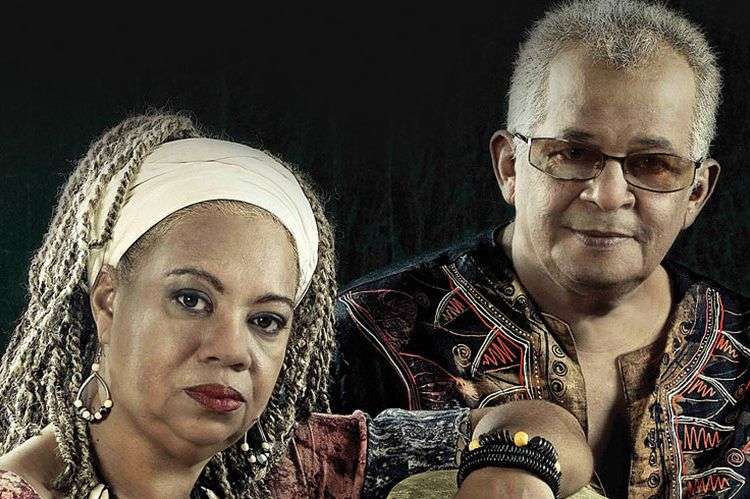WHEN I WAS BORN, 40 YEARS HAD GONE BY SINCE Carlos Alfonso spent the first night of his life on a bench in Santo Suárez Park, in the arms of his mother, on August 10, 1949. By the 1970s, Carlos Alfonso had met Ele Valdés. At that time, his attempts to make music had led him to a Ministry of Culture work camp during the sugar harvest in Matanzas, and subsequently to Trinidad, where his encounter with Afro-Cuban music would define the premise for the sound of his band, Síntesis.
How was the sount of Síntesis born? I was participating in a Yoruba religious ceremony during a film shoot, and we realized that if we combined that music with other types of sounds, we would have something that had never been done before.
(Carlos Alfonso was right. The musical esthetics of this group, influ- enced by the creativity of Mike Porcel, Lucía Huergo, and—over the last 20 years—by Esteban Puebla, made Síntesis stand out in Cuban music. It is the same group that since 1976 has embodied a sort of school or rehearsal room for many Cuban artists.)
Even though the hegemony of commercial music is growing, Síntesis survives with the same sound that it’s had for 30 years. I think that we have persisted essentially because we have not made artistic concessions of any kind, and because we’ve been fortunate in having exceptional musicians. Síntesis has main- tained its experimentation with sound and concept. That is what has enabled us to stay away from any type of fad music, no matter how lucrative.
The 1990s, when the island was going through a deep economic crisis, were productive for Síntesis… Incredibly, the scarcity of resources and the poverty that we experi- enced during those years made us grow. Some of our best albums came out of that period: El hombre extraño, Ancestros II and En los límites del barrio.
(In 2002, the album Habana a flor de piel was nominated for the Latin Grammys. This album, which strayed a bit from the group´s African influence, featured an excellent group of Cuban musicians, including Chucho Valdés on piano, the voice of Pablo Milanés, Tata Güines on batá drums, and Julito Padrón on trumpet.)
Síntesis will return to the United States in September, specifically to Miami….in professional and human terms, what is generated by this exchange in a city where different feelings exist toward all things Cuban?
Being able to have more direct contact with the Cuban-American community through our music, and demonstrating the outcome of more than 30 years of work to people who are not familiar with our island’s most contemporary musical currents.
(The Copperbridge Foundation, created by Geo Darder, extended an invitation to Síntesis as part of a cultural project that they have developed for the last two years. It’s a sure thing that Síntesis will play some of their epic numbers. And it is likely that “Si yo fuera Alá, si yo fuera Yemayá, si yo fuera Cristo, si yo fuera Buda, si yo fuera de Verdad” will be heard. And it is even probable that those who will never pardon the past will hum along.)
Photo: Alejandro Azcuy










